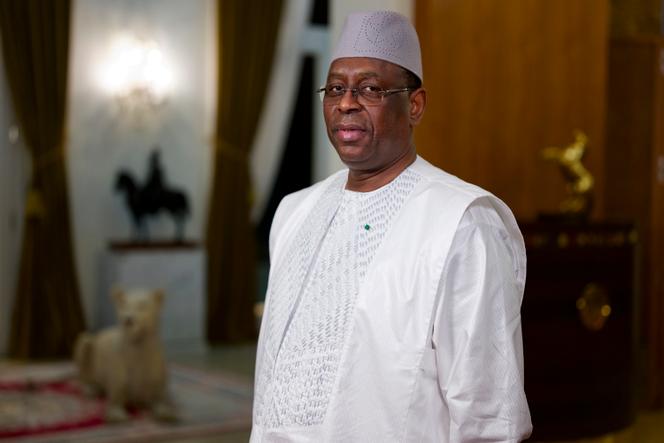


The decision is a scathing repudiation of the Senegalese president. On Thursday, February 15, the Constitutional Council overturned the postponement to December 15 of the presidential election, plunging the West African country further into uncertainty. Referred to by several members of the opposition and a dozen candidates for the presidency, the Council declared the law postponing by 10 months the election due to be held on February 25 and extending President Macky Sall's time in office beyond the end of his term is "contrary to the Constitution."
Although it also repealed the presidential decree which, de facto, modified the electoral calendar, the body did not set a new date for the vote. Given the delay in the process, it simply noted it was "impossible" to organize "the presidential election on the initially scheduled date" of February 25 and "encourages the competent authorities to hold it as soon as possible."
First announced by President Sall on February 3 and ratified two days later by MPs during a heated session in which opposition members were expelled from the National Assembly, the decision to postpone the election caused a political upheaval in a country where presidential election dates had always been respected since independence.
The Council's decision, after petitions by opponents who considered the change in timetable to be unconstitutional, was eagerly awaited, even if Senegal's leader made no commitment to follow its advice. "When the decision is made, I will be able to say what I will do," he told the Associated Press on February 9. A number of leading members of the presidential camp believe that the members of the Council do not have the authority to review a constitutional law. This interpretation has been rejected by the seven judges, who consider themselves "competent" to rule on the legality of texts.
Nevertheless, the Council finds itself in a situation that is, to say the least, uncomfortable. Committed to impartiality, it has been blamed for influencing the electoral process. Two of its seven judges have been accused of corruption by the Senegalese Democratic Party (PDS) for their decision to disqualify its candidate, Karim Wade, the son of former president Abdoulaye Wade (2000-2012), from the presidential race. Wade was disqualified for refusing to renounce his French nationality in time, as the Constitution requires that all candidates for the office be exclusively Senegalese.
The PDS then successfully got the National Assembly to set up a commission of inquiry accusing Prime Minister Amadou Ba, the ruling party's presidential candidate, of "using his power to manipulate the election and eliminate candidates."
You have 60% of this article left to read. The rest is for subscribers only.
